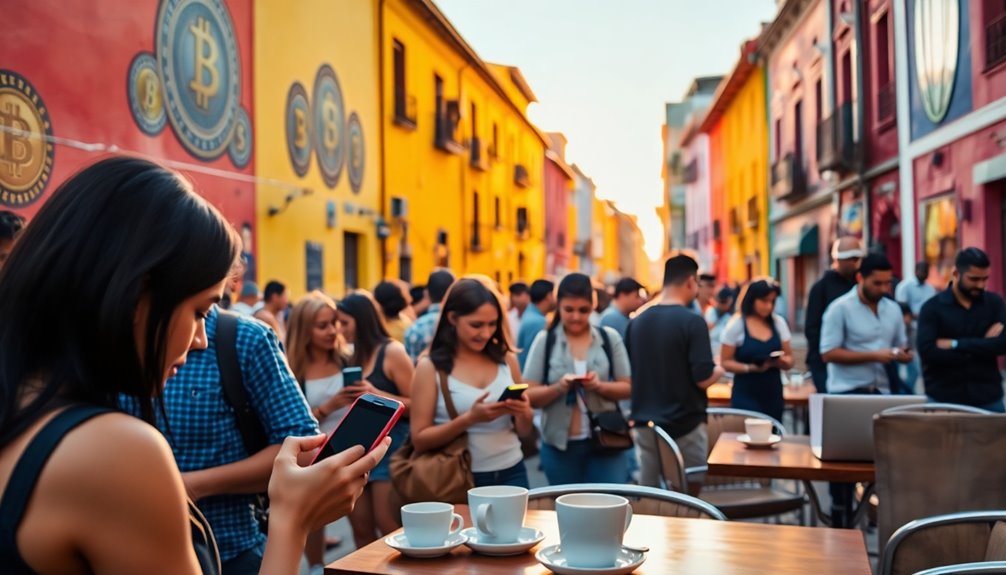You might find it intriguing that a recent YouGov poll shows around 15% of Brazilians are ready to swap their traditional bank accounts for digital currencies. This shift suggests a notable change in financial attitudes, especially as people look for innovative ways to manage their money. With economic instability on the rise, it raises questions about what this trend means for the future of banking in Brazil. What might this acceptance of digital currencies lead to next?

As Brazil navigates a rapidly evolving financial landscape, a recent YouGov poll reveals intriguing insights into the country's attitudes toward digital currencies. You might be surprised to learn that about 15% of respondents would trade their conventional bank accounts for digital currencies. This statistic highlights a growing trend among Brazilians who are increasingly open to alternatives to traditional banking systems.
One reason for this shift is the strong preference for digital banking among Brazilians. Over 66% of people prefer mobile or online interactions with their banks, and this inclination sets the stage for a more significant acceptance of digital currencies. With so many individuals already comfortable with digital platforms, it's no wonder that the idea of adopting cryptocurrencies is appealing.
The strong preference for digital banking among Brazilians paves the way for greater acceptance of cryptocurrencies.
However, despite this interest, there's a considerable gap in crypto literacy. Most people in Brazil, much like those in Mexico and the US, struggle to grasp basic crypto concepts, scoring below 60% on knowledge quizzes. While 93% of Brazilians are aware of cryptocurrencies, understanding specific assets like NFTs and stablecoins remains limited; a staggering 90% of survey respondents don't fully comprehend stablecoins. This lack of knowledge could hinder the broader acceptance of digital currencies. Only 40% could define non-fungible tokens (NFTs).
Economic factors also play a crucial role in this evolving landscape. With inflationary pressures affecting many, cryptocurrencies are increasingly seen as a hedge against economic instability. The appeal of crypto as an alternative store of value is gaining traction, especially in emerging markets like Brazil. The potential for financial inclusion is another driving factor, providing access to banking services for those who are currently underserved.
Despite the interest, there are barriers to broader crypto adoption, particularly market volatility. While volatility has decreased over the years, it still raises concerns for potential investors. Trust in traditional financial systems is waning, leading many to explore decentralized alternatives like cryptocurrencies.
Moreover, growing skepticism about big tech companies' influence pushes individuals toward solutions that promise more control over personal data.









